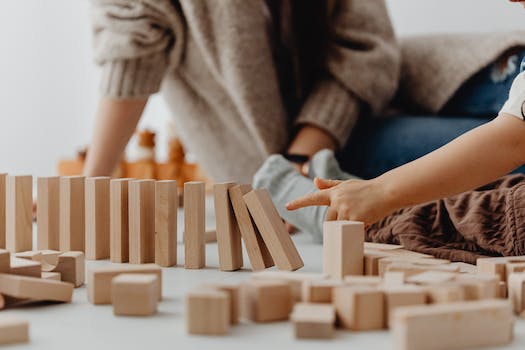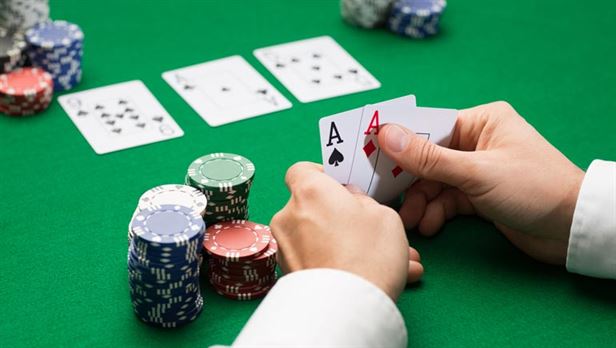Introduction:
Gambling addiction is a serious issue that affects individuals and their loved ones. It can lead to financial problems, strained relationships, and emotional distress. However, there are resources and support available to help those struggling with gambling addiction. This article aims to provide information on the various avenues of assistance, such as helplines, support groups, counseling services, and treatment programs. By seeking help, individuals can take important steps towards overcoming their gambling addiction and regaining control over their lives.
Recognizing the Signs of Gambling Addiction: A Guide for Individuals and Loved Ones
Recognizing the Signs of Gambling Addiction: A Guide for Individuals and Loved Ones
Gambling addiction is a serious issue that affects individuals and their loved ones. It can lead to financial ruin, strained relationships, and even mental health problems. Recognizing the signs of gambling addiction is crucial in order to seek help and support. In this guide, we will explore some common indicators that may suggest someone is struggling with a gambling addiction.
One of the first signs to watch out for is an increasing preoccupation with gambling. This could manifest as constantly thinking about gambling, planning future bets, or finding it difficult to concentrate on anything else. If you notice that someone you know is always talking about gambling or seems consumed by thoughts of it, it might be a red flag.
Another telltale sign is a loss of control over gambling behavior. People with gambling addictions often find themselves unable to stop or limit their gambling activities, despite negative consequences. They may continue to gamble even when they cannot afford it or have already lost significant amounts of money. This lack of control can lead to financial distress and a downward spiral of debt.
Financial issues are often intertwined with gambling addiction. If you notice that someone suddenly has unexplained debts, starts borrowing money frequently, or has trouble paying bills, it could be a sign of a gambling problem. Gambling addicts often resort to desperate measures to fund their habit, such as taking out loans or maxing out credit cards. These financial struggles can quickly escalate and cause significant stress for both the individual and their loved ones.
Social isolation is another common symptom of gambling addiction. People who are addicted to gambling may withdraw from social activities, neglect responsibilities, and distance themselves from friends and family. They may feel ashamed or embarrassed about their gambling habits and try to hide them from others. This isolation can further exacerbate feelings of loneliness and contribute to the vicious cycle of addiction.
Mood swings and irritability are also frequently observed in individuals struggling with gambling addiction. The stress and anxiety caused by financial troubles, as well as the constant cycle of wins and losses, can take a toll on one’s mental health. Gambling addicts may become easily agitated, restless, or even depressed. These emotional changes can strain relationships and make it difficult for loved ones to understand what they are going through.
Recognizing these signs is crucial, but it is equally important to approach the issue with empathy and understanding. If you suspect that someone you know may be dealing with a gambling addiction, it is essential to offer support rather than judgment. Encourage open communication and let them know that help is available.
There are various resources and support systems in place to assist individuals struggling with gambling addiction. Gamblers Anonymous is a fellowship of people who have overcome their own gambling problems and provide support to others. Counseling services, both individual and group therapy, can also be highly beneficial in addressing the underlying issues driving the addiction.
In conclusion, recognizing the signs of gambling addiction is the first step towards seeking help and support. Preoccupation with gambling, loss of control, financial struggles, social isolation, and mood swings are all indicators that someone may be struggling with this addiction. It is vital to approach the issue with empathy and compassion, offering support rather than judgment. Remember, there are resources available to help individuals overcome gambling addiction and rebuild their lives.
Finding Professional Help for Gambling Addiction: Therapists, Counselors, and Treatment Centers
Gambling addiction is a serious issue that affects millions of people around the world. For those who find themselves caught in the grip of this destructive behavior, seeking professional help is often the first step towards recovery. Fortunately, there are numerous resources and support systems available to assist individuals in overcoming their gambling addiction.
One of the most effective ways to address gambling addiction is through therapy. Therapists who specialize in addiction can provide valuable insight and guidance to help individuals understand the root causes of their gambling problem. By exploring these underlying issues, therapists can help clients develop healthier coping mechanisms and strategies for managing their cravings and urges.
Counselors trained in gambling addiction can also be a valuable source of support. These professionals can offer non-judgmental advice and assistance to individuals struggling with their gambling habits. Through counseling sessions, individuals can gain a better understanding of the negative consequences of their actions and learn how to make positive changes in their lives.
In addition to individual therapy and counseling, treatment centers specifically designed for gambling addiction can provide comprehensive support for those seeking help. These centers offer a structured environment where individuals can receive intensive treatment and support from a team of professionals. Treatment programs typically include individual therapy, group therapy, educational workshops, and other therapeutic activities aimed at addressing the various aspects of gambling addiction.
When searching for professional help for gambling addiction, it is important to consider several factors. Firstly, it is crucial to find a therapist or counselor who specializes in addiction and has experience working with individuals struggling with gambling problems. This expertise ensures that they will have a deep understanding of the unique challenges faced by those battling this particular addiction.
It is also important to find a professional with whom one feels comfortable and can establish a trusting relationship. Recovery from gambling addiction requires open and honest communication, so finding a therapist or counselor who creates a safe space for sharing thoughts and feelings is essential.
Another consideration when seeking professional help is the cost of treatment. While therapy and counseling can be expensive, there are often resources available to help offset the cost. Many insurance plans cover addiction treatment, so it is worth exploring these options to determine what is covered.
Additionally, there may be non-profit organizations or government programs that offer financial assistance for individuals seeking help for their gambling addiction. Researching these resources and reaching out for support can make treatment more accessible for those who need it.
In conclusion, finding professional help for gambling addiction is a crucial step towards recovery. Therapists, counselors, and treatment centers specializing in addiction can provide invaluable support and guidance to individuals struggling with their gambling habits. By addressing the underlying causes of the addiction and developing healthier coping mechanisms, individuals can regain control of their lives and overcome their gambling addiction. It is important to consider factors such as specialization, comfort level, and cost when choosing a professional to ensure the best possible outcome. Remember, help is available, and with the right support, recovery is possible.
Online Support Groups for Gambling Addiction: Connecting with Others on the Road to Recovery
Online Support Groups for Gambling Addiction: Connecting with Others on the Road to Recovery
In today’s digital age, where connections can be made with just a few clicks, online support groups have become a valuable resource for individuals struggling with gambling addiction. These virtual communities provide a safe space for people to share their experiences, seek advice, and find solace in the company of others who understand their struggles.
One of the key benefits of online support groups is their accessibility. Unlike traditional face-to-face meetings, which may require travel or adherence to specific schedules, these virtual gatherings can be accessed from anywhere at any time. This convenience allows individuals to connect with others who are going through similar challenges without the added stress of logistical hurdles.
Additionally, online support groups offer a level of anonymity that can be particularly appealing to those who are hesitant to disclose their gambling addiction publicly. For many individuals, the fear of judgment or stigma prevents them from seeking help. However, within the confines of an online community, participants can choose to remain anonymous or use pseudonyms, providing a sense of security and freedom to express themselves openly.
The shared experiences within online support groups foster a sense of belonging and validation. Participants can relate to one another’s stories, empathize with their struggles, and celebrate their triumphs. Through this collective understanding, individuals gain reassurance that they are not alone in their journey towards recovery. They can draw strength from the success stories of others and find inspiration to persevere in their own battles against gambling addiction.
Moreover, online support groups often serve as a valuable source of information and resources. Members can exchange tips, strategies, and coping mechanisms that have helped them navigate their addiction. By sharing practical insights and knowledge, these communities empower individuals to make informed decisions about their recovery process.
Transitional phrase: Furthermore,
Furthermore, online support groups offer a platform for ongoing education and self-improvement. Many groups provide access to educational materials, webinars, and guest speakers who specialize in gambling addiction. These resources enhance participants’ understanding of the condition, its triggers, and effective treatment options. By continuously learning about their addiction, individuals can develop a deeper insight into their own behaviors and work towards sustainable recovery.
The supportive nature of online communities extends beyond just emotional support. Members often establish genuine friendships and connections that transcend the virtual realm. These relationships can provide a sense of camaraderie and accountability, as members hold each other responsible for their actions and progress. Through regular check-ins, shared goals, and mutual encouragement, individuals feel motivated to stay on track with their recovery journey.
Lastly, online support groups can act as a stepping stone towards seeking professional help. While these communities offer invaluable peer support, they are not a substitute for clinical intervention. Participants may find solace in knowing that others have successfully sought therapy or counseling to address their addiction. This knowledge can alleviate the fear and stigma associated with professional help, encouraging individuals to take the next step towards a comprehensive recovery plan.
In conclusion, online support groups for gambling addiction serve as a lifeline for individuals seeking help and support on their path to recovery. These virtual communities provide accessibility, anonymity, validation, information, education, friendship, and motivation. They create a space where individuals can connect with like-minded people who understand their struggles and provide guidance along the way. By leveraging the power of technology and human connection, online support groups play a vital role in helping individuals overcome gambling addiction and regain control of their lives.
Financial Strategies for Overcoming Gambling Addiction: Rebuilding Your Finances
Financial Strategies for Overcoming Gambling Addiction: Rebuilding Your Finances
Gambling addiction can have devastating consequences, not only on one’s mental and emotional well-being but also on their financial stability. The allure of the game, the thrill of the risk, and the hope of a big win can often lead individuals down a path of financial ruin. However, there is hope for those struggling with gambling addiction. By implementing effective financial strategies, individuals can rebuild their finances and regain control over their lives.
One crucial step in overcoming gambling addiction is acknowledging the problem and seeking help. Once individuals have taken this brave first step, they can begin to develop a solid plan to tackle their financial challenges head-on. One strategy that can be immensely helpful is creating a budget. By carefully tracking income and expenses, individuals can gain a clear understanding of where their money is going and identify areas where they can cut back or eliminate unnecessary spending.
Another essential aspect of rebuilding finances after gambling addiction is addressing any outstanding debts. Many individuals who struggle with gambling find themselves drowning in debt, whether it be credit card debt, loans, or unpaid bills. Seeking professional assistance from a financial advisor or counselor can provide guidance on how to negotiate with creditors, set up payment plans, and work towards becoming debt-free.
It’s important to note that rebuilding finances doesn’t happen overnight. It requires patience, perseverance, and discipline. Setting realistic goals and developing a long-term financial plan is key. This may involve saving a certain percentage of income each month, paying off debts systematically, and gradually rebuilding credit scores.
In addition to managing current debts, it’s crucial to address any legal issues that may have arisen as a result of gambling addiction. Some individuals may have faced legal consequences due to theft, embezzlement, or other illegal activities committed to support their habit. Working with an attorney can help navigate these complex legal matters and ensure that individuals take the necessary steps to resolve any legal issues they may be facing.
Rebuilding finances after gambling addiction also requires a shift in mindset. It’s important to develop healthy financial habits and attitudes towards money. This may involve seeking financial education, attending support groups, or working with a therapist specializing in addiction recovery. By addressing the underlying emotional and psychological factors that contribute to gambling addiction, individuals can establish a solid foundation for long-term financial stability.
One crucial aspect of rebuilding finances is establishing a support network. Surrounding oneself with positive influences, whether it be friends, family, or support groups, can provide the necessary encouragement and accountability needed to stay on track. Sharing experiences, advice, and resources with others who have gone through similar challenges can be incredibly empowering.
Lastly, it’s essential to remember that overcoming gambling addiction and rebuilding finances is a journey. There will undoubtedly be setbacks along the way, but it’s important not to lose hope. By staying committed to one’s goals, seeking help when needed, and remaining focused on the long-term benefits of financial stability, individuals can successfully overcome gambling addiction and rebuild their lives.
In conclusion, overcoming gambling addiction and rebuilding finances is no easy task. However, by implementing effective financial strategies, seeking professional assistance, addressing legal issues, shifting mindset, developing healthy financial habits, and establishing a strong support network, individuals can regain control over their finances and pave the way for a brighter future. Remember, there is always hope and help available for those willing to take the first step towards recovery.
Self-Help Resources for Gambling Addiction: Books, Websites, and Apps
Gambling addiction is a serious issue that affects millions of people worldwide. It can have devastating consequences, both financially and emotionally. However, there is hope for those struggling with this addiction. Self-help resources such as books, websites, and apps can provide valuable support and guidance on the path to recovery.
Books are a great starting point for anyone looking to overcome their gambling addiction. There are numerous titles available that offer practical advice, personal stories, and strategies for breaking free from the grip of gambling. One highly recommended book is “Addiction by Design” by Natasha Dow Schüll. This insightful work explores the psychology behind gambling addiction and offers a deep understanding of its mechanisms. Another helpful read is “The Easy Way to Stop Gambling” by Allen Carr, which provides a step-by-step approach to quitting gambling for good.
In addition to books, there are also many websites dedicated to helping individuals overcome their gambling addiction. These websites often provide a wealth of information, including self-assessment tools, treatment options, and forums where individuals can connect with others facing similar challenges. Gamblers Anonymous (GA) is one such website that offers support groups and meetings for those seeking help. Their 12-step program has helped countless individuals recover from their addiction and rebuild their lives.
Furthermore, technology has made it easier than ever to access support for gambling addiction through various apps. These apps provide users with tools and resources to track their gambling habits, set limits, and receive motivational messages. One popular app is “Quit Gambling – Stay Sober,” which helps users monitor their progress and stay accountable in their journey towards recovery. Another useful app is “Gamban,” which blocks access to online gambling sites and apps, providing an added layer of protection for those who struggle with temptation.
It’s important to note that while self-help resources can be incredibly beneficial, they may not be sufficient for everyone. For some individuals, professional help may be necessary to overcome their gambling addiction. Therapists and counselors who specialize in addiction can provide personalized support, therapy, and guidance tailored to an individual’s specific needs.
In conclusion, self-help resources such as books, websites, and apps offer valuable support for those struggling with gambling addiction. Books provide insights, strategies, and personal stories that can inspire and guide individuals on their journey to recovery. Websites like Gamblers Anonymous offer support groups and meetings where individuals can connect with others facing similar challenges. Apps provide tools and resources to track progress, set limits, and stay accountable. While these resources can be incredibly helpful, it’s important to recognize that professional help may also be necessary for some individuals. By utilizing these self-help resources and seeking appropriate support, individuals can take the first steps towards overcoming their gambling addiction and regaining control of their lives.
How to Support a Friend or Family Member with Gambling Addiction: Tips and Advice
Gambling addiction is a serious issue that affects not only the individual struggling with it but also their friends and family. If someone you care about is facing this problem, it’s important to provide them with the support they need. Here are some tips and advice on how to support a friend or family member with gambling addiction.
Firstly, it’s crucial to educate yourself about gambling addiction. Understanding the signs and symptoms can help you recognize when your loved one may be struggling. Common signs include being preoccupied with gambling, needing to gamble with increasing amounts of money, and feeling restless or irritable when trying to cut back or stop. By familiarizing yourself with these indicators, you can better understand what your friend or family member is going through.
Once you have a better understanding of gambling addiction, it’s essential to approach the situation with empathy and compassion. Remember that addiction is a disease, and your loved one needs your support rather than judgment or criticism. Let them know that you are there for them and that you want to help in any way you can. Show them that you believe in their ability to overcome this challenge.
Encourage open communication by creating a safe space for your loved one to talk about their struggles. Let them know that they can trust you and that you will listen without judgment. Be patient and understanding as they share their thoughts and emotions. It’s important to validate their feelings and let them know that they are not alone in this journey.
Offer practical assistance by helping your loved one find professional help. Research local resources such as therapists, counselors, or support groups specializing in gambling addiction. Encourage them to seek treatment and accompany them to appointments if they feel comfortable. Remind them that seeking help is a sign of strength, not weakness.
In addition to professional help, encourage your loved one to participate in self-help groups like Gamblers Anonymous. These groups provide a supportive environment where individuals can connect with others facing similar challenges. Attending meetings can help your loved one feel understood and provide them with the tools they need to overcome their addiction.
Supporting someone with a gambling addiction also means setting boundaries. It’s important to take care of yourself as well. Establish limits on how much time and energy you can devote to helping your loved one without neglecting your own well-being. Remember that you cannot control their actions or choices, but you can be there to support them.
Lastly, celebrate milestones and achievements along the way. Recovery from gambling addiction is a long and challenging process, so acknowledging your loved one’s progress is essential. Whether it’s completing a therapy session or reaching a certain period of abstinence, let them know that you are proud of their efforts.
In conclusion, supporting a friend or family member with gambling addiction requires empathy, understanding, and patience. Educate yourself about the issue, create a safe space for open communication, and encourage professional help and self-help groups. Set boundaries to protect your own well-being and remember to celebrate every step forward. With your support, your loved one can overcome their addiction and build a healthier, happier life.




